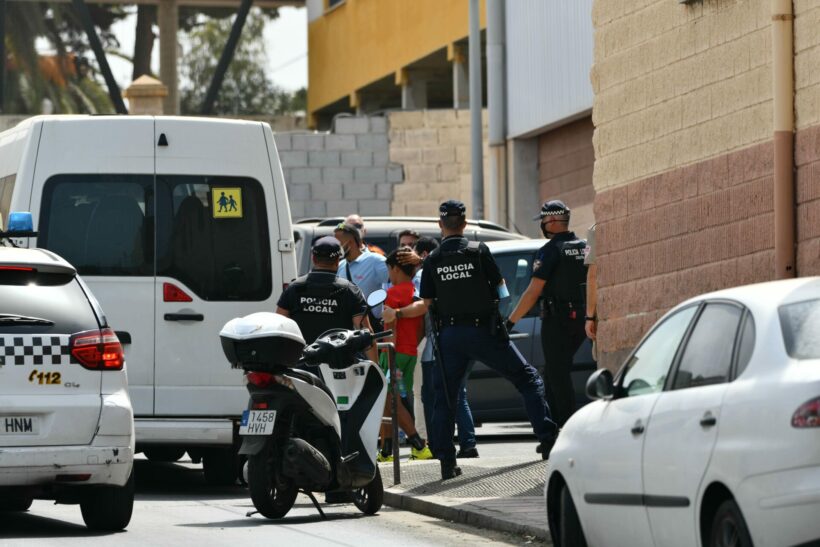The Administrative Chamber of the Spanish Supreme Court has condemned Spain for the return of eight unaccompanied migrant minors in August 2021. This followed the migration crisis in May of the same year, in which approximately 12,000 people, including more than 1,500 minors, swam to Ceuta. In the explanatory memorandum, the magistrates of the Spanish high court argue that “this situation lasted for three months, during which there is no evidence that the Spanish authorities, whether state or regional, initiated individualised proceedings to determine the circumstances and needs of each of the minors.
In August, without the diplomatic crisis having been resolved, Spanish officials met with Moroccan officials in the border area between the two countries, where they agreed to return the minors to Morocco, using as a regulatory basis the Agreement between the Kingdom of Spain and the Kingdom of Morocco on cooperation in the prevention of illegal emigration of unaccompanied minors, their protection and their concerted return, of 6 March 2007. This international agreement had been published in the Official State Gazette in Spain on 22 March 2013. Thus, the minors, or at least some of them, were sent back to Morocco in groups of several dozen people each during the month of August. There is no record that the Spanish authorities carried out any other procedure, beyond taking note of the names of the returned minors. Nor is there any record that the Moroccan authorities or the children’s families have made any complaint, nor have they reported violations of international norms.
The Supreme Court upholds the previous judgment of the Andalusian Court of Justice, finding that the Spanish action constituted a collective expulsion. The court recalls that the collective expulsion of migrants, including minors travelling alone, is considered prohibited under the Convention on Human Rights and was carried out without following the proper procedure established in the law on foreigners.
The magistrates point out that an individualised administrative procedure was not carried out for each minor concerned, which resulted in the violation of their rights to physical and moral integrity, exposing them to a serious risk of physical or psychological suffering.
The judgment emphasises that the 2007 agreement between Spain and Morocco is not applicable in this case, as it does not specify procedures for the return of minors. Such a procedure is essential, especially when the fundamental rights of individuals are at stake. Furthermore, he dismisses the relevance of Morocco’s failure to object to the surrender of the minors, arguing that this does not imply that Spain acted in full conformity with its own legality.
The Abogado del Estado and the Letrado de la Ciudad Autónoma de Ceuta representing the then Government Delegate in Ceuta, Salvadora Mateos, and the Councillor of the Presidency in charge of minors of the Ceuta regional executive, María Isabel Deu, in their written submissions in the appeals, emphasise the exceptionally serious nature of the human avalanche that took place in that city on 17 and 18 May 2021, as well as the extraordinary difficulty that its management entailed for the Spanish authorities: For the State, in its capacity as competent in matters of international relations, border control and safeguarding public order; for the Autonomous City of Ceuta, among other things, in its capacity as responsible for the care of minors. Still in this order of considerations, they insist that this whole episode took place, from start to finish, during a diplomatic crisis, with the Moroccan Ambassador to Spain being called for consultations and, therefore, with high-level communication between the two countries interrupted. They point out that the August conversation, in which the return of the minors was agreed on the basis of the Agreement of 6 March 2007, was not carried out by the diplomatic services, but by officials from the Ministry of the Interior and the Autonomous City of Ceuta.
For its part, the prosecution has always maintained, both in writing and orally, that the agreement of 6 March 2007 is an international administrative agreement that does not regulate any procedure for the return of unaccompanied minors; and, in connection with this, it has also affirmed that there is no record that the Spanish authorities carried out, during the three months that the situation lasted, any procedure or diligence beyond taking the minors into custody and finally sending them back to Morocco. This way of acting determined, according to the prosecutor’s office, a jeopardising of the physical and moral integrity of the minors, without adjusting to the guiding criterion of the “best interests of the minor” as ordered by the Convention on the Rights of the Child, to which both Spain and Morocco are signatories.
Legal sources consulted by this newspaper state that the ruling does not rule on future events and clarifies controversial aspects such as whether the 2007 Agreement signed with Morocco was sufficient to return migrant children to the neighbouring country, and whether, in addition to applying this treaty, the law on foreigners had to be applied. In any case, what he confirms is that if he wants to return a migrant child travelling alone to Morocco, the return, in order to be legal, must comply with the guarantees of article 35 of the Law on Foreigners and article 191 of the Regulation of Organic Law 4/2000, on the rights and freedoms of foreigners in Spain and their social integration, which sets out the procedure for repatriating foreign minors.






